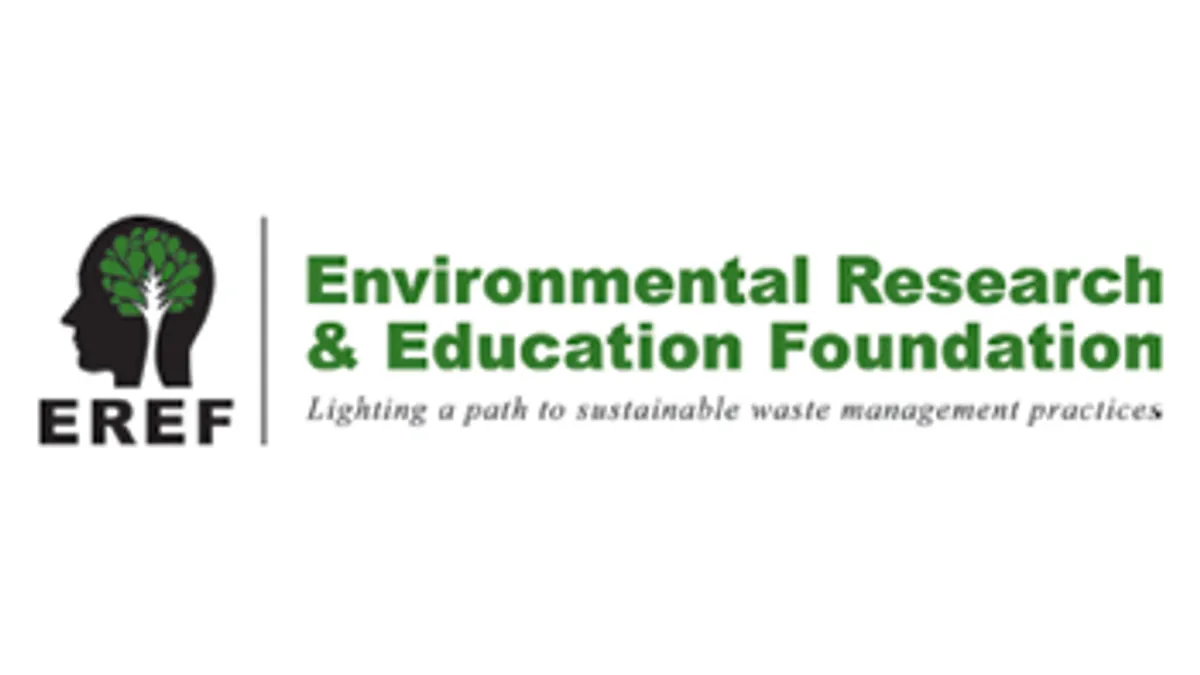Dive Brief:
- The Board of Directors of the Environmental Research and Education Foundation (EREF) has awarded research grants to two universities: $127,525 to North Carolina State University for "Development and Assessment of Cost-Effective Sustainable Integrated Organics Management Strategies," and $150,000 to Yale University for "Making up for Lost Time (and Space): Quantifying Non-hazardous Industrial Waste Output and Beneficial Use Opportunities in the US."
- The Organics Management Strategies project will focus on financial and economic impacts of various solid waste management processes leveraging The Solid Waste Optimization Life-cycle Framework (SWOLF), a life cycle assessment (LCA) tool.
- The Non-hazardous Industrial Waste Output project will involve research that will fill an information gap resulting from a 30-year time lag since the last assessment of non-hazardous industrial wastes’ (NHIW) generation rate. The goal is to help industry become equipped to facilitate large-scale NHIW reuse and recycling project.
Dive Insight:
Research has a valuable role in the ever-evolving solid waste management industry, especially with new policies, tighter regulations, and advancing technologies.
The topic of organics diversion is a center focus through these evolutions, especially since the EPA has set a 50% food waste diversion goal by 2030. In reaching for that target, municipalities and industry leaders are looking at processes from composting to anaerobic digestion. But figuring out the most cost-effective and least environmentally harmful way to do it can be complicated; enter LCA, which some industry experts say could dramatically change the way the industry assesses its carbon footprint.
Non-hazardous industrial waste (NHIW) is a hot industry issue too, as this waste category is substituted for virgin raw materials, potentially generating environmental and economic benefits. But, as with finding the best food waste management system, there is a need for science-based evaluation to be able to make sound decisions. Investigators are working to help guide a dynamic and complex industry through the research, with help from grant programs like that of EREF.













